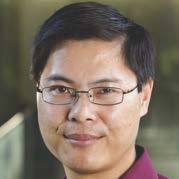检测到您当前使用浏览器版本过于老旧,会导致无法正常浏览网站;请您使用电脑里的其他浏览器如:360、QQ、搜狗浏览器的极速模式浏览,或者使用谷歌、火狐等浏览器。
 下载Firefox
下载Firefox
检测到您当前使用浏览器版本过于老旧,会导致无法正常浏览网站;请您使用电脑里的其他浏览器如:360、QQ、搜狗浏览器的极速模式浏览,或者使用谷歌、火狐等浏览器。
 下载Firefox
下载Firefox
Abstract: Fine spatiotemporal regulation of biochemical activities within cells is essential for the execution of complex functions like directed migration and intercellular communication. My lab creates genetically encoded tools to sense and control biochemical events with spatial and temporal specificity. In one example, I will describe the development and application of TimeSTAMP to reveal dysregulation of protein synthesis pathways in neurons a model of mental retardation. In a second example, I will describe the design, engineering, and validation of single-chain photoswitchable proteins, and their use to reveal previously unknown biochemical responses downstream of kinases and GTPases.

Dr. Lin is an Associate Professor at Department of Neurobiology, Stanford University. Dr. Lin’s lab applies biochemical and engineering principles to the development of protein-based tools for imaging and control of biochemical processes. Topics of investigation include fluorescent proteins structure and biophysics, fluorescent protein-based biosensors, neuronal activity sensors, spatiotemporal analysis of protein translation pathways, chemical control of protein translation, and light-responsive proteins.
欢迎各位老师同学积极参加!